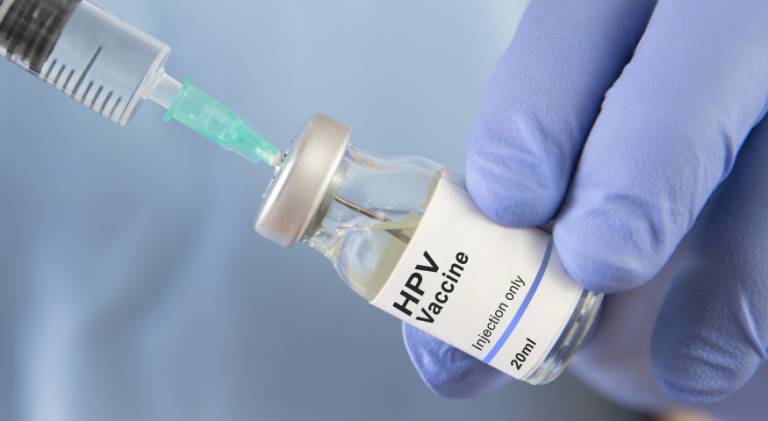Research from UCL into the cost-effectiveness of the HPV vaccination has led to policy and vaccination roll-out changes in Italy, Canada and the UK.

Predicting how effective a vaccination strategy will be can be challenging for governments, because there are many different scenarios to consider. Scientists use complicated and time-consuming mathematical models to help with this decision-making process.
Professor Gianluca Baio’s research at the UCL’s Department of Statistical Science focuses on novel modelling methods, to provide cost-effectiveness analysis and solve decision-making problems in health systems.
The evidence is submitted to regulatory bodies such as NICE in England. It then informs the development of new healthcare interventions and helps governments decide whether public funds should be used to pay for them.
Specifically, the UCL team developed a novel ‘Bayesian dynamic Markov model’ to assess the cost-effectiveness of a new vaccination strategy to reduce Human Papilloma Virus (HPV) infection. HPV is a leading cause of cancer of the genitals and anus, genital warts and recurrent respiratory papillomatosis.
The model demonstrated that a “universal” vaccination strategy (rather than simple screening programmes or targeted vaccinations for young females) could be more cost effective.
The approach and results convinced authorities in Italy, Canada and the UK to modify their policies for HPV vaccination.
In Italy, the HPV vaccine has now been extended to include two million males aged 12 to 18. This decision has saved the Italian health service approximately £63 million a year, thanks to fewer male HPV-related diseases.
The results were also used as part of the body of evidence that informed the UK’s strategy, which means that all 12-13 years olds are now offered an HPV vaccination.
UCL’s modelling expertise in this area has also been used to help shape the UK’s vaccination programme against Meningitis B.
Read the full story on the UCL Research Impact website
 Close
Close


